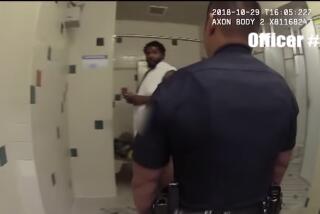Quote Ruling
- Share via
The news that the 9th Circuit Court finds nothing wrong with altering or fabricating quotations (“9th Circuit Court Rules Writer May Alter Quotes,” Part I, Aug. 5) is very bad for all of us, but especially distressing to history professors. “Close doesn’t do it,’2 ‘ we tell our young colleagues when their citations are sloppy or they fail to get the quotation right. Whatever credibility can be claimed for the historian’s craft derives directly from the assumption that such scruples are respected and observed.
Now we learn that a majority of the 9th Circuit Court of Appeals in Pasadena has determined that it is permissible for reporters to make up quotations so long as they reflect “rational interpretations” of a public figure’s remarks or do not “alter the substantive content” of what is said. That this moves journalism (often referred to as the first draft of history) from solid ground into a deep and dismal swamp is obvious from the example used by the court to make its finding. The judges saw nothing distorting in changing “I was a private asset (to Drs. Kurt Eisler and Anna Freud), but a public liability,” to read: “I was like an intellectual gigolo.”
Fortunately, an accompanying article by Thomas B. Rosenstiel produced evidence to suggest that most journalists profess standards far above those endorsed by the Court.
It is was also good to read that the plaintiff in the case decided by the 9th Circuit plans to appeal its verdict to the U.S. Supreme Court.
If the high court overturns this silly and dangerous challenge to integrity and truth, it will do more than come to the aid of journalists and historians. Being “faithful to the word” is essential if we are to preserve public trust--the very blood of the republic. Let us hope the justices attend more carefully than did his colleagues at the 9th Circuit to Judge Alex Kozinski’s dissent: “while courts have a grave responsibility under the First Amendment to safeguard freedom of the press, the right to deliberately alter quotations is not . . . a concomitant of free press.”
GLORIA LOTHROP LEVERING
DAVID L. LEVERING
Professors of History
Cal Poly Pomona
More to Read
Sign up for Essential California
The most important California stories and recommendations in your inbox every morning.
You may occasionally receive promotional content from the Los Angeles Times.













